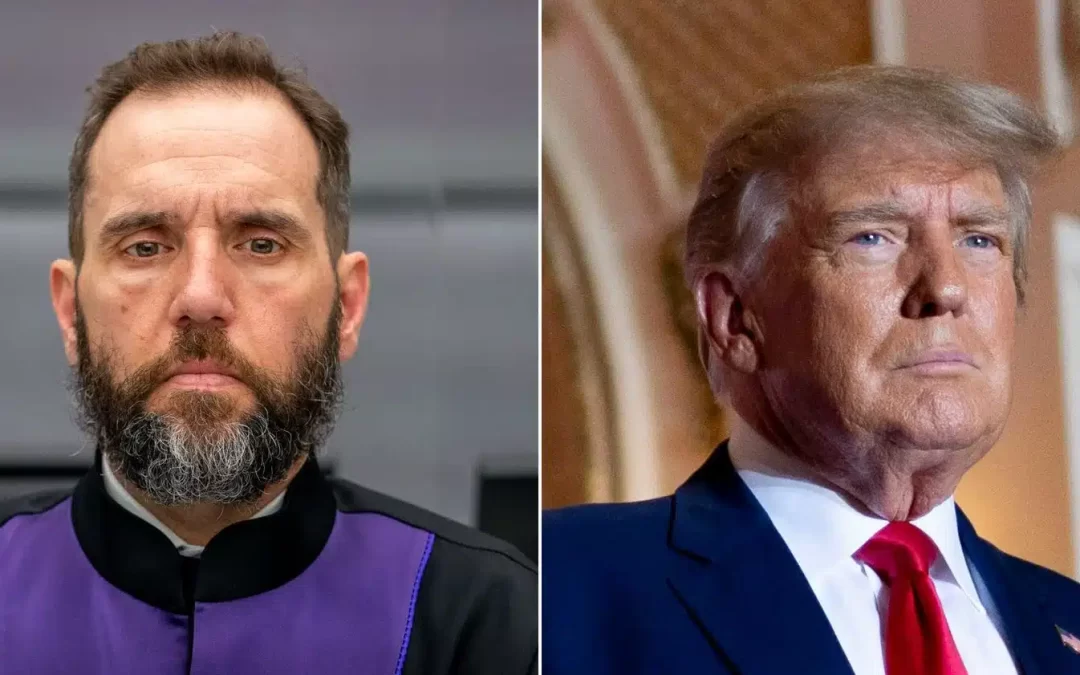Special Counsel Jack Smith may execute a “backup plan” if his case in Florida against former President Donald Trump does not stick.
NYU Law Professors Ryan Goodman and Andrew Weissmann published an op-ed in The Atlantic, where they speculate that if the classified documents case against Trump in Florida falls through, Smith could pursue charges of “dissemination of classified documents” in the state of New Jersey in an entirely separate indictment.
“Smith appears to have taken a cautious, narrow approach. Even though the indictment describes alleged dissemination and disclosure of national-security secrets, the indictment did not charge Trump with those offenses,” they write. “One possible explanation for his decision: venue. The Constitution requires prosecutors to bring charges in the location—or venue—where the alleged criminal conduct took place. Justice Department prosecutors could not necessarily bring charges against Trump in Miami for alleged criminal conduct that occurred in another state, in this case, New Jersey. But the absence of such charges in the indictment raises the intriguing possibility of another indictment to come, in a jurisdiction, no less, with a pool of jurors and judges more favorable to the government’s case against Trump,” the authors wrote in the report.
The report goes on to speculate that if the Florida judge were to delay the case proceedings after the 2024 presidential election, Smith could move ahead with charges in New Jersey — a Democrat stronghold that would likely not be favorable to Trump.
“The legal uncertainties that surround bringing charges in Florida for dissemination of national-security secrets in Bedminster leaves open the possibility that charges might yet be brought in New Jersey—a backup plan of sorts for Smith. If Aileen Cannon, the Florida judge assigned to the case, were to seek to pocket-veto the charges before her by, say, scheduling the trial for after the 2024 presidential election, the special counsel would be able to sidestep her tactic by proceeding with charges in New Jersey,” they added in the report.
“Smith might still decide against bringing a separate indictment for dissemination because such a move could be painted as overcharging,” they wrote. “The government usually tries to avoid being seen as piling on, at least in such a high-profile matter. But if Cannon acts consistently with her prior Trump-friendly rulings, which were twice found by unanimous panels of conservative appellate judges to be both factually and legally flawed, Smith might go looking for another way to ensure accountability — and another venue where he could do so.”
Trump appeared in Miami on Tuesday for his arraignment in the case brought against him by Special Counsel Jack Smith, who Biden’s Department of Justice appointed. Trump pleaded “not guilty” through his attorneys in federal court.
The federal judge granted Trump a pretrial release with no special conditions except no contact with witnesses. Smith has charged Trump with 37 counts related to his handling of classified documents.
If he is found guilty on all counts, Trump — who is President Joe Biden’s chief rival in next year’s presidential election — could face decades in prison.
According to the indictment, Trump allegedly showed classified documents to a number of people who did not have the proper security clearances on at least two separate occasions. The DOJ alleges that both instances occurred at Trump’s golf club in Bedminster, N.J.
Details regarding one of the alleged instances were leaked to CNN.
The network reported that federal prosecutors had “obtained an audio recording of a summer 2021 meeting in which former President Donald Trump acknowledges he held onto a classified Pentagon document about a potential attack on Iran, multiple sources told CNN, undercutting his argument that he declassified everything.”
The charges “include willful retention of national defense information, conspiracy to obstruct justice, withholding a document or record, corruptly concealing a document or record, concealing a document in a federal investigation, a scheme to conceal, and false statements and representations,” ABC News reported.
“Maximum sentences for the respective charges, per their statutes, range from five up to 20 years, although any eventual sentence should Trump be convicted would likely be much lower,” the outlet added.









